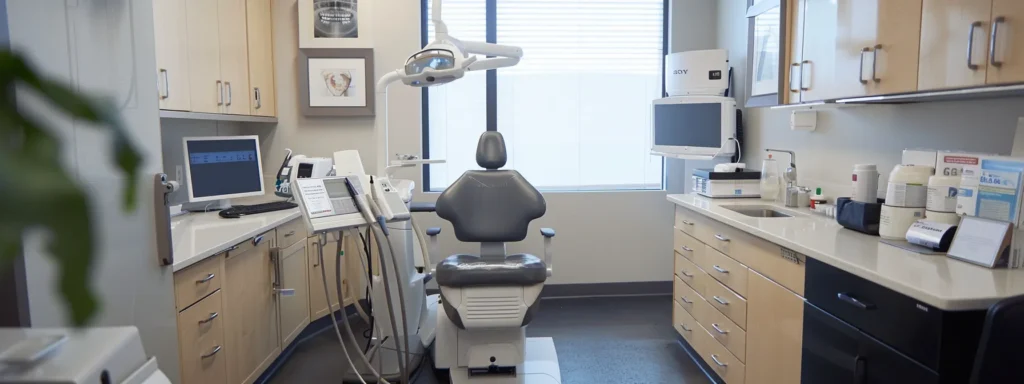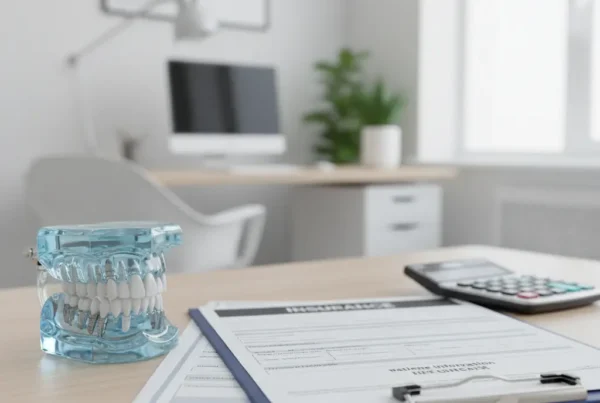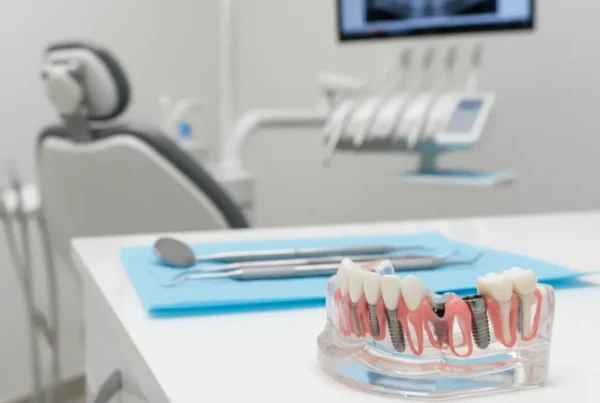Healing from dental implant surgery can be surprisingly straightforward when you know what to expect. At Grand Prairie Family Dental, we guide patients through each stage to promote comfort, confidence, and proper healing from day one.
Understanding the phases of healing helps set clear expectations. In the first 24 hours, rest is critical. Swelling, minor bleeding, and mild discomfort are common and typically resolve in a few days. Over the next few weeks, the implant fuses with the jawbone in a process called osseointegration, and this internal healing continues even if everything feels fine externally.
Each step of the recovery process requires specific actions. Avoiding strenuous activities, practicing excellent hygiene, and following post op dietary recommendations all contribute to a smooth experience. Our team personalizes these instructions for each patient, tailoring advice based on your health history, the number of implants, and any additional procedures performed.
By knowing what lies ahead, you’re less likely to feel anxious or make mistakes that delay recovery. Clarity, preparation, and proactive care are your best tools for success.
Managing Pain and Discomfort Without Stress
Pain after dental implant surgery is normal, but it should not be overwhelming. With a strategic approach to discomfort, you can stay in control and support your body’s natural healing timeline.
We start by helping you understand what’s typical: mild soreness, swelling, or bruising that improves daily. This clarity lowers anxiety and prevents unnecessary concern. You will also receive prescriptions or over the counter recommendations that, when taken on schedule, keep pain in check and avoid the rollercoaster of wearing off.
Proper rest is essential. Many patients underestimate how powerful good sleep and quiet time can be during healing. Using cold compresses and elevating your head while sleeping reduces swelling and supports circulation. Add gentle oral hygiene to the mix, and you’ll notice steady improvement day by day.
When pain is expected and addressed proactively, your experience becomes far less intimidating. It’s not about eliminating all discomfort. It’s about managing it wisely and understanding how to work with your body instead of against it.
The Do’s and Don’ts That Protect Your Implant
Following your dentist’s instructions is not just a suggestion; it’s a vital part of protecting your new implant. Everything from diet to hygiene plays a role in how well you heal. After surgery, your daily routine must shift temporarily to accommodate healing. This means avoiding high impact activities, using special rinses, and monitoring for signs of irritation. Think of it as a temporary structure with long term payoff.
One of the most effective ways to prevent complications is sticking to the recommended aftercare, especially in the first week. Here’s what that typically includes:
- Stick to soft foods like oatmeal, yogurt, and mashed potatoes
- Avoid hard, crunchy, or sticky snacks that could dislodge healing tissue
- Brush gently with a soft bristled toothbrush and avoid the surgical site at first
- Use dentist-approved rinses instead of regular mouthwash
- Keep all follow up appointments for monitoring progress
These simple steps dramatically reduce the risk of infection, pain, or implant failure. Committing to care protocols helps ensure your implant becomes a permanent, stable part of your smile. With the right habits in place, you can actively support long term success and prevent setbacks.
Why Every Patient’s Healing Journey is Different
No two dental implant recoveries are exactly alike, and that’s perfectly normal. Factors like age, bone quality, and lifestyle habits all influence the speed and smoothness of healing.
For example, younger patients often heal faster due to better regenerative capacity. Meanwhile, older patients or those with chronic conditions may need additional time or support to reach full recovery. At Grand Prairie Family Dental, we tailor timelines based on your unique biology.
Smoking, heavy alcohol use, or poor nutrition can also impact your body’s ability to recover efficiently. That’s why we offer pre and post operative counseling for lifestyle adjustments that can make a real difference. Even simple shifts like quitting smoking or boosting protein intake can help the implant integrate with the jaw more predictably.
Understanding and embracing your body’s natural rhythm allows you to stay patient and motivated throughout the process. Personalized care leads to better results and a more comfortable recovery experience.

Tools and Tips to Support a Faster Recovery
Sometimes it’s the little things that make a big difference during implant recovery. At Grand Prairie Family Dental, we equip every patient with the tools and knowledge they need to feel supported from day one. We provide recovery kits with soft bristled toothbrushes, saline rinses, and soothing gels. But the support doesn’t end with supplies. You will also receive printed and digital aftercare instructions, plus access to our team if questions arise. Knowing that help is only a phone call away creates peace of mind.
Here are some other ways we help you stay on track:
- Custom aftercare plans based on your health and procedure type
- Daily routines that balance hygiene and rest
- Transparent communication about timelines and potential setbacks
- Nutritional guidance to support tissue healing
- Ice pack instructions and techniques for optimal comfort
With the right resources, the road to recovery feels much smoother. It’s not about perfection. It’s about having the right guidance at every turn, so you never feel like you are navigating it alone. Our team is committed to supporting you every step of the way.
Knowing When to Call Your Dentist
Monitoring your healing is not just your dentist’s job; it is yours too. Knowing what’s normal and what’s not helps you catch issues early and avoid bigger setbacks.
Some soreness or swelling is expected, especially in the first 48 hours. But if your pain worsens, if bleeding doesn’t stop, or if you notice pus or foul odor near the implant, it is time to reach out. These could signal infection or a problem with integration that needs attention.
Paying attention to your overall health matters too. Fever, chills, or fatigue could indicate your body is fighting something off. These systemic symptoms may not seem dental related at first, but they can be early warning signs.
When in doubt, contact us. Dr. Behrooz Khademazad and the team at Grand Prairie Family Dental would always rather catch something early than wait too long.
Your Road to Recovery Starts With Us
Dental implant recovery is not just about the procedure; it is about the partnership that follows. At Grand Prairie Family Dental, we take pride in guiding you through each step with personalized support, clear communication, and trusted care.
From the first consultation through the final checkup, our goal is to make sure you are never left guessing. We believe that confident, informed patients heal better and faster. Whether you need pain relief tips, reassurance, or a quick check in, our team is here to help.
Ready to experience stress-free healing from your implant surgery? Schedule your consultation today with Dr. Behrooz Khademazad and discover what personalized dental care in Grand Prairie, TX truly feels like.
Schedule Your Consultation Today!
Grand Prairie Family Dental
2475 W Pioneer Pkwy Grand Prairie, Texas, 75051
Google Reviews: See More Reviews From Grand Prairie Family Dental
View information about local places in our community.
Driving Directions to Our Practice
Frequently Asked Questions
How can I manage pain after my dental implant surgery?
This is a common concern for patients worried about discomfort. Managing pain effectively supports both your comfort and healing. The better question is: how can I stay ahead of discomfort and recover smoothly?
- Insight: Pain is normal, but preventable distress is not.
- Context: With timely medication, rest, and simple home care like cold compresses, you can minimize most post-op pain.
- Recommendation: Follow your dentist’s exact instructions, take medications on schedule, and elevate your head at night to reduce swelling. Never wait for pain to worsen. Address it early and stay consistent with your care routine.
What can I eat after my implant procedure?
Patients often ask this because they’re afraid of disturbing the surgical site. The real question is: how can I fuel healing while protecting the implant?
- Insight: The right foods can accelerate your body’s ability to heal.
- Context: Soft, nutrient-rich foods reduce stress on the surgical area while giving your body the building blocks it needs.
- Recommendation: Stick with smoothies, scrambled eggs, or broths for the first few days. Slowly reintroduce solid foods only after your dentist approves it. Prioritizing nutrition supports healing and comfort.
How do I know if my dental implant is healing correctly?
You might ask this when symptoms feel unclear. But a more helpful question is: how can I track healing without second-guessing every sensation?
- Insight: Healing is gradual, but there are key indicators to look for.
- Context: Reduced swelling, less tenderness, and no signs of infection are all positive signals. Pain should decline, not increase.
- Recommendation: Keep every follow-up appointment and monitor the area for redness, heat, or discharge. If anything feels off, call us quickly. Timely action is always better than delay.
Related Services






